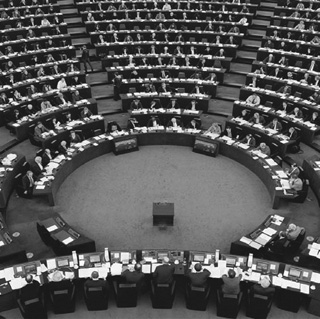
Sustainability and Parliaments: Survey and Perspectives RIO +20
- Project team:
Thomas Petermann, Maik Poetzsch
- Thematic area:
- Topic initiative:
Committee for Education, Research and Technology Assessment
- Analytical approach:
TA project
- Startdate:
2010
- Enddate:
2012
sprungmarken_marker_2010
Background and central aspects of the topic
Following the UN Earth Summit in Rio in 1992, a great variety of activities were initiated in politics and society all over the world. In the process, it became clear that the political perception and realisation of the goal of sustainability pose a challenge to governments and parliament, specifically to their established procedures and to their organisation based on a division of labour. The long-term trends of social development and the effects of political measures must be identified and taken into account. Political actions must be coordinated among numerous affected departments. A high degree of coordination with special interest groups in society is necessary if long-term goals affecting more than one area of policy are to be achieved. To this end, procedures as well as forms of institutionalisation (e.g., interdepartmental programs, creation of specialised scientific institutes, boards of inquiry, expert committees, communication fora between politics and society) have been established by parliaments and governments in many European countries.
The politics of sustainability has provided new momentum for the long-term orientation of politics and the formulation of corresponding goals in all countries. Awareness of long-term and interdepartmental policy formulation has been sharpened and has led to new forms of »governance". A report presented by TAB in 2003 (TAB working report no. 86) confirmed that both the initiative and the further development of sustainability policy are essentially carried by the executive. At governmental level, sustainability policy has led to new administrative structures (specific supervisory responsibilities in the Department of the Environment) and to the installation of new institutions (e.g. sustainability councils and task forces in the ministries). The role of parliament, in contrast, seems to lie in accompanying and supporting the policy of sustainability. Its role as a forum for public consultation and as a body supervising the executive probably does not exhaust the potential of parliament, however.
By creating the Commission of Enquiry on »Protecting People and the Environment« as well as appointing the parliamentary advisory body on sustainable development, the German Bundestag has, compared with the parliaments in other countries, made an excellent contribution to national sustainability policy. A range of measures can, however, be envisaged that might be appropriate to further strengthen its role in German sustainability policy. The possible options range, for example, from exercising its budgetary powers more strongly to control governmental programmes and draft legislation with regard to their contribution to promoting sustainable development, to regular plenary debates on the status of German sustainability policy and finally to intensive use of the options for monitoring the sustainability of laws and programmes.
Objectives and approach
Taking the previous TAB report and the survey presented at the time as a starting point, a comprehensive evaluation is made. Both an overall review and some country studies are planned, the latter as examples that analyse in depth how the parliaments in other countries have initiated institutional innovation and learning processes. These should then be examined with regard to whether they can be transferred to the structures and procedures of the German Bundestag. Against this background some institutional and procedural options to strenghten the role of the German Bundestag will be identified.
Three basic focal points of parliamentary work are of particular interest in this context:
- Accompanying the work of the government on the topic of sustainability, and supervising the work of the government from the perspective of its contribution to sustainable social development;
- Participating in a substantive sense in the further development and implementation of sustainability strategies (definition of sustainability goals and measures, proposals for legislation with particular relevance for sustainability policy;
- Stimulating and supporting social discussion about sustainable development by handling sustainability issues in a prominent and public manner and by establishing the principles of sustainability, such as by means of participation and communication in the work of parliamentary agencies and committees (councils, hearings, and commissions of enquiry).
Publications
Petermann, T.; Poetzsch, M.
2012. Büro für Technikfolgen-Abschätzung beim Deutschen Bundestag (TAB). doi:10.5445/IR/1000137301
Petermann, T.; Poetzsch, M.
2012. Büro für Technikfolgen-Abschätzung beim Deutschen Bundestag (TAB). doi:10.5445/IR/1000103301
In the Bundestag
- Vorgang - Bericht, Gutachten, Programm im Dokumentations- und Informationssystem für Parlamentsmaterialien (DIP)
